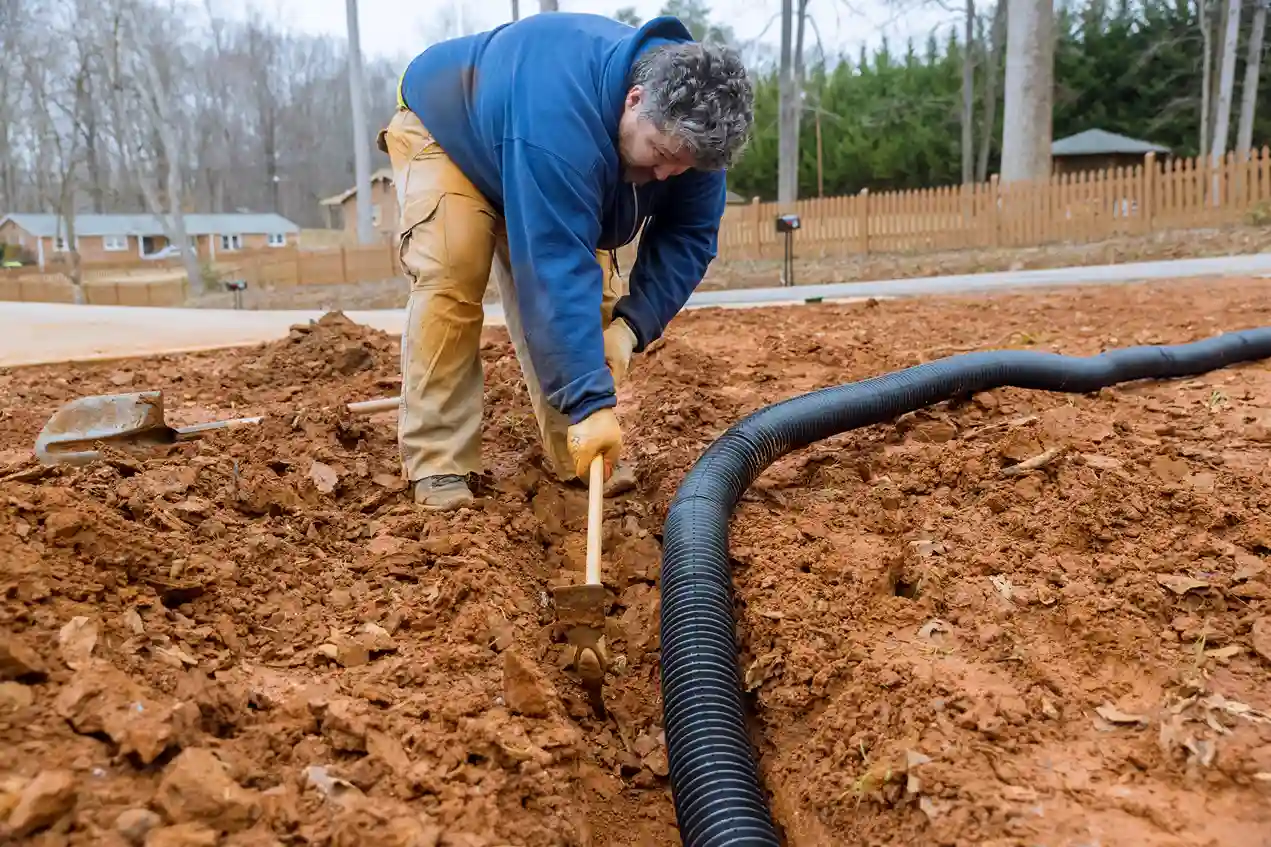Your sewer system might be out of sight, but when it backs up, it’s front and center in the worst way possible. It’s messy, it smells bad, and it can leave you scrambling for solutions before the damage spreads. From damaged floors and walls to serious health hazards, the impacts of a sewer backup can quickly turn more serious than just a funky smell.
So, what’s the root of the problem? Blockages from grease, debris, or non-flushable items are common culprits. Old pipes, tree roots, and even heavy rain can also damage your sewer line.
Want to know how to fix a sewer backup? The answer depends on the cause. In this blog, we’ll cover what causes sewer backups, the risks of ignoring them, and actionable solutions from the experts at Clarke and Rush Mechanical.
What Causes Sewer Backups?
Blockages in the Sewer Line
Blockages are the most common cause of sewer backups. Things like grease, hair, and food scraps that shouldn’t go down the drain can build up inside your pipes. Even non-flushable items like wipes, diapers, and hygiene products can find their way into the sewer line and clog things up. These materials don’t break down and eventually block the flow of wastewater causing it to back up into your home or yard.
Tree Root Intrusion
Roots naturally seek out moisture and your sewer line is an obvious source for them. Tiny cracks or loose joints in the pipes give roots an entry point. Once they invade, the roots will grow quickly, and obstruct the pipe causing it to crack or collapse.
Old or Damaged Sewer Systems
Pipes made of materials like clay or cast iron will eventually decay as time passes. Cracks, corrosion, and shifting soil can all lead to weakened pipes that are more susceptible to blockages and breaks.
Heavy Rainfall and Flooding
During heavy rain or flooding, sewer systems can become overwhelmed with excess water. When the system can’t handle the volume, the overflow can make its way back into private sewer lines. Homes in low-lying areas or with outdated drainage systems are especially vulnerable.
Municipal Sewer Problems
Not all sewer problems start on your property. If the public system backs up, it often pushes wastewater into connected properties that will leave you to deal with the mess yourself.
How to Fix Sewer Backups
Immediate Actions to Take
Every second counts when you are faced with a sewer backup. Here’s what to do:
- Turn off your water supply. This stops additional water from entering the sewer system.
- Avoid using drains or toilets. Flushing or running water will only add to the backup.
- Protect yourself. Wear gloves, boots, and a mask if you’re dealing with raw sewage.
- Call a plumber. If things develop beyond your control, professional help is your best bet to resolve the backup safely and effectively.
DIY Solutions for Minor Issues
For minor clogs, you can try quick fixes like using a plunger to dislodge blockages in the line or a plumbing snake to break up clogs deeper in the pipe. When using a snake or auger, handle it gently to avoid causing any damage to the piping.
Professional Sewer Backup Solutions
For more severe backups, these methods are what plumbers use:
✔Hydro-jetting: Plumbers use high-pressure water to clear stubborn clogs, grease, and roots.
✔Pipe repair or replacement: Broken or collapsed pipes may need to be fixed or replaced entirely.
✔Trenchless solutions: Technologies like pipe relining or pipe bursting repair pipes without extensive digging.
Tips to Avoid Future Backups
- Dispose of grease properly. Pour grease into a container and throw it in the trash instead of down the drain.
- Watch what you flush. Only flush toilet paper. No wipes, hygiene products, or paper towels.
- Schedule regular sewer inspections. Annual checkups can find potential problems before they escalate.
- Install a backflow prevention device. These devices block wastewater from coming back into your home.
- Be mindful of landscaping. Keep trees and shrubs away from sewer lines to avoid root intrusion.
Risks of Ignoring a Sewer Backup
Health Hazards
Raw sewage is loaded with harmful bacteria, viruses, and parasites that can pose serious health risks, especially for children, the elderly, or anyone with a weakened immune system.
Property Damage
Sewer backups can ruin floors, walls, and furniture. Water damage spreads quickly, and contaminated materials often need to be replaced entirely. The longer you wait, the worse and more expensive the damage becomes.
Increased Repair Costs
A small backup is much easier and cheaper to fix than a full-blown sewer line collapse. Ignoring the problem only gives it time to worsen and leaves you with no option but to replace entire sections of pipe or clean up extensive water damage.
Take Steps to Prevent Sewer Backups Now
From clogs caused by grease and debris to tree roots invading your pipes or old systems breaking down, the causes are many, but the solutions start with prevention. If you’re trying to figure out how to fix sewer backup problems or prevent them entirely, Clarke and Rush Mechanical has the expertise you need. Visit us at 4411 Auburn Blvd, Sacramento, CA, 95841, call (916) 609-2665, or head to clarke-rush.com to schedule an appointment.


